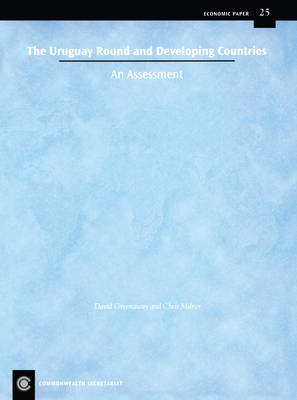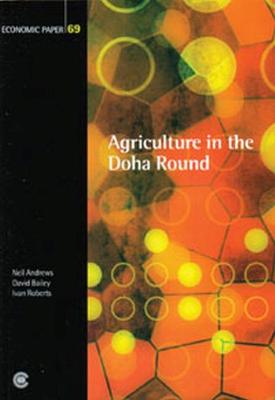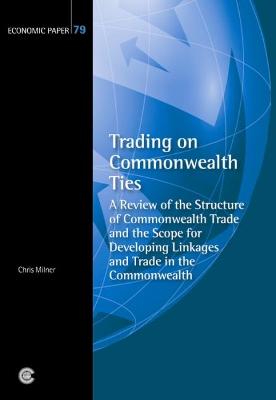Economic Papers
3 primary works
Book 25
The Uruguay Round and Developing Countries
by David Greenaway and Chris Milner
Published 1 January 1996
This study provides an overall assessment of the implications of the Uruguay Round for a broad cross-section of developing Commonwealth countries. It also makes recommendations on policy options open to them. It is hoped that the study will provide a good basis for member governments in assessing the policy implications of the impending changes in the international trading system in the context of their economies, and in formulating appropriate responses.
Book 68
Agricultural Export Subsidies and Developing Countries' Interests
by Chris Milner and Wyn Morgan
Published 1 January 2004
A new impetus has been given to faltering WTO trade discussions by the recent EU mandate supporting the liberalisation of agricultural trade policies and removal of export subsidies on agricultural products, within an environment in which all countries start reforming their trade policies. Until now, discussions have centred on agriculture in general, rather than at specific commodity level. This paper rises to the challenge laid down by the EU in identifying the specific commodities for which developing countries would gain benefit in any subsequent reforms. The paper outlines the nature of export subsidies. It discusses the effect of reform on developing countries, indicating the scale of any changes. The policy implications of removing agricultural support in the EU are given and the consequences for net food exporting and importing countries examined. Finally, the impact of EU agricultural policy reform on other policies, such as the Protocols of the Lome Convention are considered.
Book 79
What are the characteristics of current intra-Commonwealth trade, and how can it be encouraged to grow? Trading on Commonwealth Ties identifies opportunities for stimulating trade within the Commonwealth, but warns against setting up a free trade agreement across the member states. Chris Milner argues that while the idea of trying to build a Commonwealth free trade agreement may hold enormous appeal, it is fraught with legal, administrative and political difficulties. He identifies improving trade infrastructure - particularly roads, railways and port facilities - as a key means of lowering trading costs and boosting trade both within the Commonwealth and with non-Commonwealth countries. Intra-Commonwealth trade currently generates about US$225 billion a year in export trade for member countries, which is equivalent to about 16 per cent of Commonwealth countries' total exports. This is a substantial volume of trading activity, but overall the bulk of Commonwealth countries' trade is with countries outside the Commonwealth.
Nonetheless, for some countries, like Botswana, Namibia, Papua New Guinea and Samoa, intra-Commonwealth trade remains significant as it represents in excess of 70 per cent of their international trade. This book will be of interest to economic planners, researchers and policy-makers in all Commonwealth countries.
Nonetheless, for some countries, like Botswana, Namibia, Papua New Guinea and Samoa, intra-Commonwealth trade remains significant as it represents in excess of 70 per cent of their international trade. This book will be of interest to economic planners, researchers and policy-makers in all Commonwealth countries.


